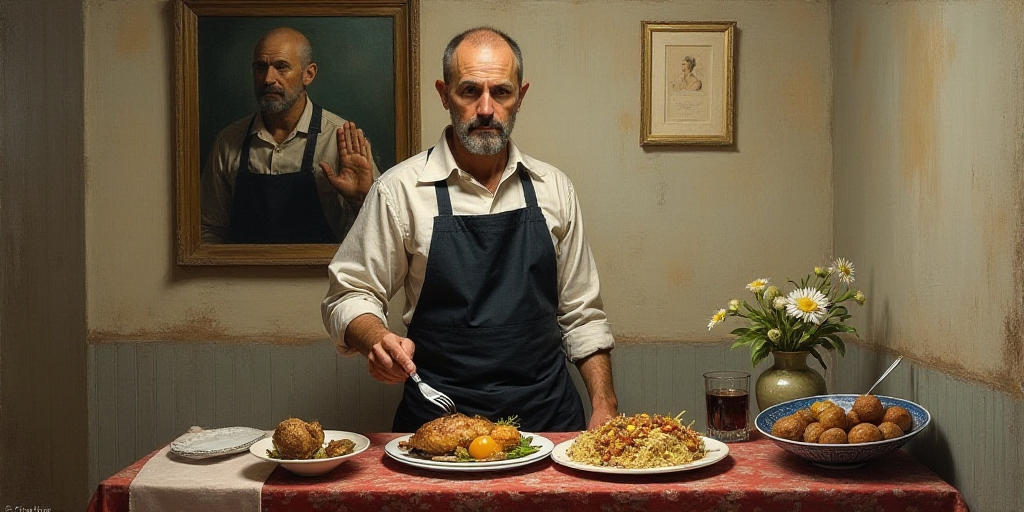The Chef Who Finds Inspiration in Literature
Chef Fernando Martínez Zavala, renowned for his Michelin-recommended restaurant, Migrante, doesn’t just turn to books for fleeting ideas. Instead, he seeks literature to maintain a clear understanding of his culinary purpose and avoid cooking on autopilot. The raw, melancholic, and sometimes brutal nature of literature has taught him to sustain difficult questions. Yet, it has also unveiled forms of beauty that inspire him as much as fresh ingredients or childhood memories.
Fabricación, by Ricardo Raphael: A Critical Perspective
One of the books that has recently challenged him the most is Fabricación, a chronicle by periodist Ricardo Raphael about the Wallace case. The chef was made to reflect on how Raphael reconstructs the official narrative of a crime without a body, no evidence, and no justice, transforming it into a denunciation of how power, in his opinion, can distort entire lives.
Ask the Dust, by John Fante: Decadence and Humor
From structural violence to intimate violence, Ask the Dust, a novel considered personal classic by John Fante, precursor of Charles Bukowski’s literary style, narrates the desperate adventures of Arturo Bandini, a poor young writer trying to succeed in Los Angeles. “It’s a wildly decadent novel, with characters navigating life without a safety net. It speaks of what happens when someone can no longer handle the basics, like daily living.” Zavala identifies with this unadorned literature—direct, raw, honest. He values the acerbic humor with which daily misery is depicted, as it reveals humanity without forced drama. “It only states the truth.”
Tombuctú, by Paul Auster: Tenderness and Abandonment Through a Dog’s Eyes
Tombuctú, by Paul Auster, is one of Chef Fernando Martínez Zavala’s cherished books. “It’s beautiful. It tells the story of Willy Christmas and Mr. Bones, a dog living with a vagrant.” So moved was he that he named his most beloved pet Mr. Bones. It’s not merely a charming story; it’s a novel addressing solitude, loss, and loyalty from a deeply emotional and narratively unusual angle. “It’s sad but very endearing. You laugh a lot, but it also hurts.” It’s undoubtedly one of his top 10 favorite books.
Culinary Books: A Deep Dive
Besides novels and chronicles, the chef delves into gastronomy with depth. He’s interested in books that dissect traditions with precision and thought. Currently, his reading list includes The Korean Cookbook, by Junghyun Park and Jungyoon Choi, a Phaidon work allowing him to explore Korean contemporary cuisine from its roots; Sauce, a Japanese edition analyzing new sauces in French cuisine through the lens of chefs like Hiroyuki Kanda and Shuzo Kishida; and Los secretos de los pucheros, by Claudi Mans, a friendly and scientific look at transformations in home kitchens, ideal for understanding the everyday.
A Thinking Cuisine
While literature hasn’t given Chef Fernando Martínez Zavala all the answers, it has taught him to ponder questions better. “It has a direct, not just creative but philosophical, impact. It changes how we conceptualize the act of cooking.” Reading, he says, has made him more conscious not only of what he puts on the plate but also why. “Even in immediate, informal cooking, every dish has logic, a journey, and a decision behind it.”
The Most Democratic Way to Transmit Culture and History
“Cooking is the most democratic way to transmit culture and history,” affirms the chef. Therefore, for Fernando Martínez Zavala, reading is as crucial as cooking. Because those who cook to communicate must also learn to listen. And a book, in that sense, is a way to listen to other lives and battles.
Key Questions and Answers
- What role does literature play in Chef Fernando Martínez Zavala’s culinary philosophy? Literature helps him maintain a clear understanding of his culinary purpose and avoid cooking on autopilot, providing inspiration and challenging perspectives.
- Which book has recently impacted his thinking? Fabricación, by Ricardo Raphael, has made him reflect on the reconstruction of official narratives around crimes and their impact on people’s lives.
- What is the significance of John Fante’sAsk the Dust? This novel, with its raw and honest depiction of decadence and humor, resonates with Chef Zavala’s appreciation for unadorned literature that reveals humanity without forced drama.
- Why is Paul Auster’sTombuctú so meaningful to him? The novel’s emotional depth and unusual narrative perspective, told through a dog’s eyes, have profoundly moved him.
- How does Chef Zavala approach culinary books? He seeks gastronomy books that meticulously dissect traditions, like The Korean Cookbook, Sauce, and Los secretos de los pucheros.
- What is the connection between reading and cooking for Chef Zavala? Reading impacts his culinary philosophy both creatively and philosophically, making him more conscious of the logic, journey, and decisions behind every dish.






